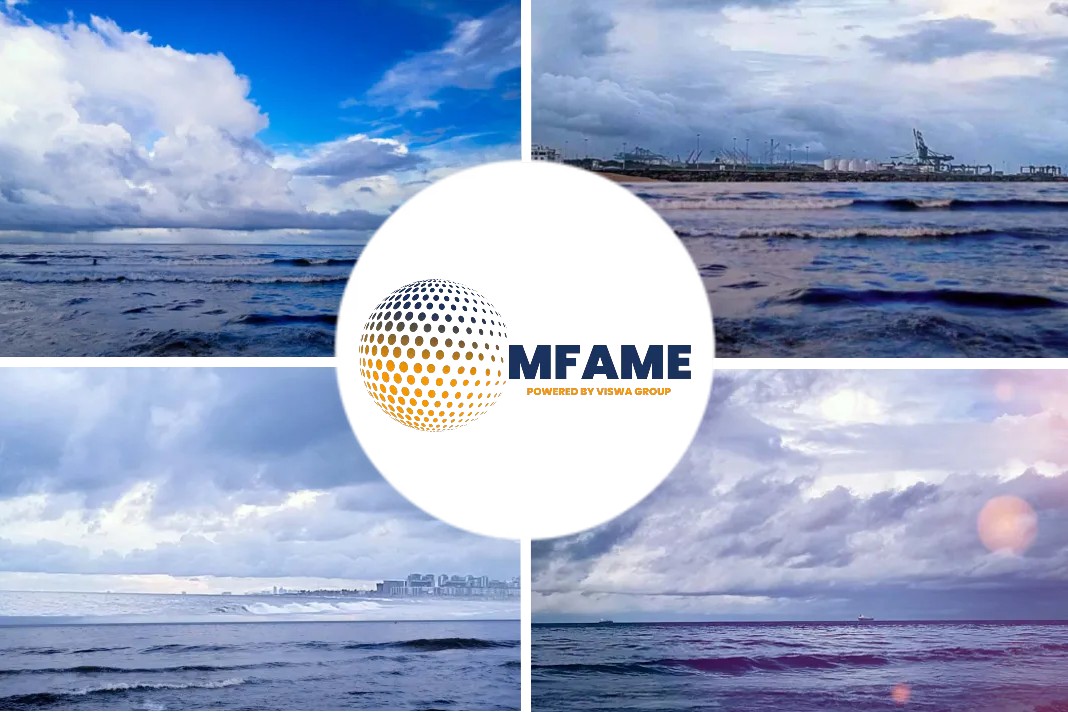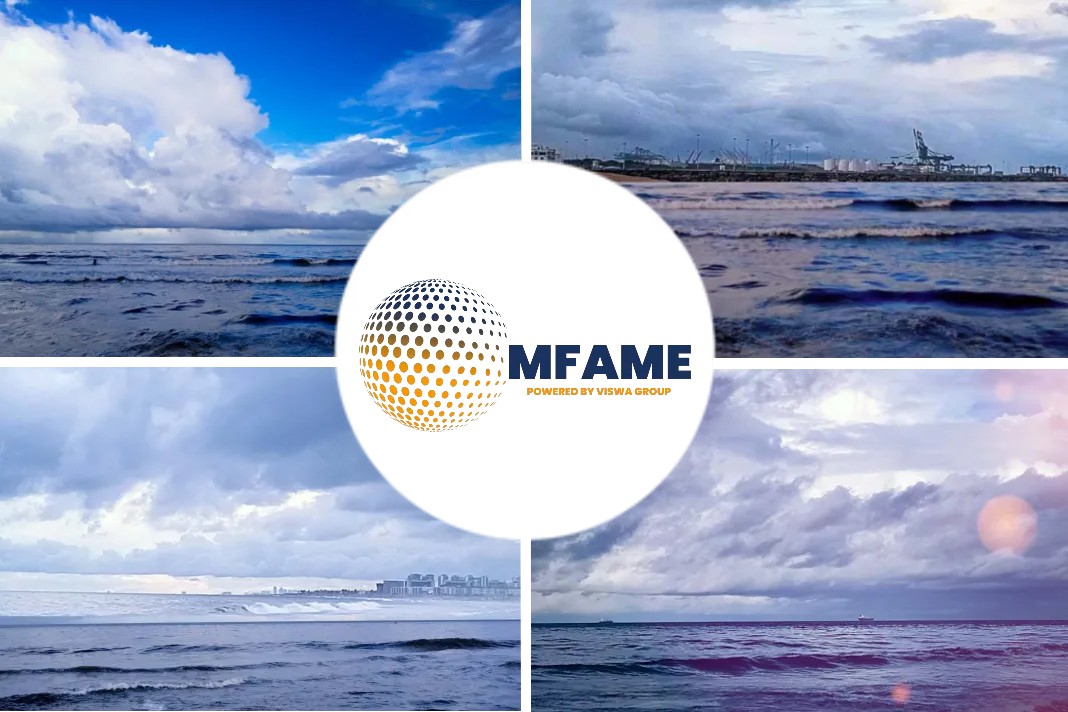We replaced two corroded scrubber overboard pipes on a large container ship without interrupting or delaying the ship’s itinerary. An operation like this requires careful planning and excellent coordination between the ship’s management team, officers and crew and our Technical Department, says an article published in the Hydrex.
Obtaining specifications
It also requires fast, efficient work on the part of our competent diver/technicians.
It begins with obtaining the exact specifications so that the new pipes can be fabricated. Once made they go to a specialist paint shop to apply Ecospeed. This is a proprietary protective coating needed to make sure that the pipes will not corrode again. Ecospeed is impervious to all of the very harsh chemicals present in the scrubber effluent. These are responsible for the rapid corrosion of the pipes when not properly protected. It is manufactured and distributed by Hydrex’s sister company, Subsea Industries.
Following is a case study of just such an operation that took place earlier this year. It was begun in Rotterdam and completed in Algeciras. This allowed the ship to continue on its schedule without delays.
The specifications of the required replacement overboard pipes were obtained from the customer. The new pipes fabricated and coated with Ecospeed well before installation was scheduled.
Installing cofferdams
In order to carry out the operation with the ship still afloat rather than in drydock, cofferdams had to be installed underwater on the exterior of the hull. This blanked off the scrubber outlet while the pipes were being replaced.
On the day that the ship was to dock in Rotterdam, preparations were going ahead at the Hydrex fast response center in Antwerp. Two cofferdams of the right dimensions were loaded onto one of the Hydrex workboats. The two replacement scrubber outlet pipes and the needed diving equipment were also loaded. The workboat then headed off to Rotterdam in good time to be there when the Hydrex team of divers/technicians arrived by road.
With the team on board, the Hydrex workboat speeded to the ship. Unpacking and setting up gear were all carried out rapidly and efficiently while the workboat was en route through the port of Rotterdam to the ship at the container terminal.
Replacement
The next step was to hoist the two replacement outlet pipes on board so that they could be taken to the engine room ahead of time.
With this done, the first diver suited up and prepared to dive to find the scrubber outlets on the hull. Once located and with a down line in place, installation of the two cofferdams could proceed. By now it was getting dark but work on the installation proceeded until both scrubber outlets were blanked off. The cofferdams were secured in place with screw dogs welded to the hull around the outlet.
Two teams then went into the engine room and began to cut out the corroded pipes that were to be replaced. Removal of the two existing outlet pipes completed the work of the first shift.
Installation
Meanwhile a second shift of diver/technicians mobilized from the Hydrex Antwerp fast response center and arrived just as the first shift was wrapping up. They quickly moved into the engine room and prepared to install the new pipes.
A bevel was then grinded on the hull plate openings where the old pipes had been removed. This was done in preparation for the full penetration welds needed to install the new pipes. Then the new pipes were fitted in place and the welding began.
The welding continued through the night. When it was finished, it was tested by an independent NDT expert and found to be sound. The scrubbers were reassembled. This completed the work of the second shift and they departed, leaving the new scrubber overboard pipes in place.
Inspection
The ship had to sail. The cofferdams remained in place for removal at a later date in another port when this could be accomplished without disrupting the ship’s schedule.
The ship was due to dock in Algeciras quite soon with enough time to remove the cofferdams. The team arrived at the ship’s location and prepared to dive to remove the cofferdams from the scrubber outlets. The welds could also be inspected from the outside during this part of the operation.
The cofferdams were successfully removed. The welds were found to be sound on the exterior and after it was cleaned up, epoxy was applied for further protection.
The ship was able to continue on schedule with the new scrubber outlets functioning properly and proofed against future corrosion.
The entire operation was carried out without the need to drydock and without delays to the ship’s schedule.
This is a good example of how Hydrex keeps ships in business and out of drydock. We perform a large number of similar operations as well as a variety of underwater maintenance and repair jobs all over the world at short notice.
Did you subscribe to our daily Newsletter?
It’s Free! Click here to Subscribe
Source: Hydrex




















